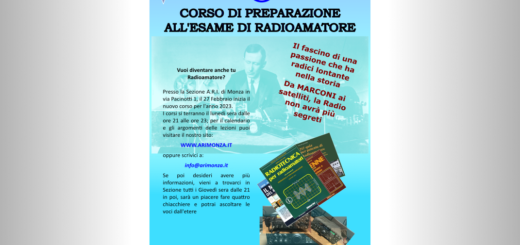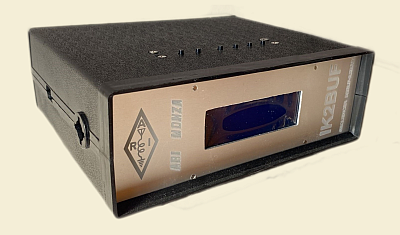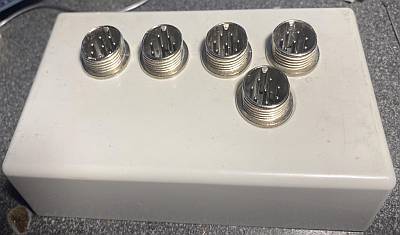contatto 31 gennaio 2018
An International Space Station school contact has been planned for Joe Acaba KE5DAR with Central Magnet Math & Science ES/Batesville School District, Batesville, Arizona.
The event is scheduled on Wednesday 31 January 2018 at approximately 16.42 UTC.
The contact will be a telebridge operated by IK1SLD in Northern Italy.
The contact should be audible in parts of Europe. Interested parties are invited to listen in on the 145.800 MHz FM downlink.
School Information:
Central Magnet Elementary is located in Batesville, Ark. The school?s magnet theme is math and science. We are a grade K through 6 school with about 359 students. In addition to classroom learning, students explore math and science in the school’s computer lab and STEM lab. Students in our school have recently won competitions in robotics. We also host a science fair. Every fall, our 5th grade class attends a field trip to Space Camp at the U.S. Space & Rocket Center in Huntsville, Alabama. This field trip is very inspiring to our students. In leading up to the school’s ISS contact, classroom lesson plans are including topics about the ISS and space. The students have also been given assignments to watch for the ISS when it passes overhead in the evening. All local TV, radio, and print media will be invited to the ARISS event. Central Magnet is looking forward to speaking to an astronaut aboard the ISS.
Participants will ask as many of the following questions as time allows:
1. Walker (4th): How do astronauts travel to and from the space station?
2. Gareth (4th): Is your sense of time distorted because you are orbiting the earth every 90 minutes?
3. Yuridia (4th): What is it like to perform an EVA?
4. AshLee (5th): How do you keep in contact with your family?
5. Leslie (5th): How do the stars look from the space station?
6. Elizabeth (5th): What is it like to transition to micro gravity when you arrive at the space station?
8. Alexander (6th): What inspired you to become an astronaut?
9. Aya (6th): What are the experiments you work on aboard the space station?
10. Ty (6th): How does the space station get oxygen?
11. Walker (6th): Do you crave certain foods while you are in space?
12. Gareth (6th): How do you spend your free time on the space station?
13. Yuridia (6th): Do you play any games, sports or exercise while in space?
14. AshLee (5th): What is your perspective of seeing the Earth?s weather from space?
15. Leslie (5th): Are you hopeful astronauts will return to the moon?
16. Elizabeth (5th): How long will you be staying on the ISS?
17. Melody (4th): What happens to the trash you produce on the ISS?
18. Alexander (4th): Is it comfortable sleeping in a weightless environment?
19. Aya (4th): How do astronauts take care of medical problems while in space?
20. Ty (4th): What advice can you give for students wishing to become an astronaut?
About ARISS:
Amateur Radio on the International Space Station (ARISS) is a cooperative venture of international amateur radio societies and the space agencies that support the International Space Station: NASA, Russian Space Agency, ESA, JAXA, and CSA. The US Center for the Advancement of Science in Space (CASIS) and the National Aeronautics and Space Administration (NASA) provide special support.
ARISS offers an opportunity for students to experience the excitement of Amateur Radio by talking directly with crewmembers on board the International Space Station. Teachers, parents and communities see, first hand, how Amateur Radio and crewmembers on ISS can energize youngsters’ interest in science, technology, and learning.
The primary goal of ARISS is to promote exploration of science, technology, engineering, and mathematics (STEM) topics by organizing scheduled contacts via amateur radio between crew members aboard the ISS and students in classrooms or informal education venues. With the help of experienced amateur radio volunteers, ISS crews speak directly with large audiences in a variety of public forums. Before and during these radio contacts, students, teachers, parents, and communities learn about space, space technologies, and amateur radio. For more information, see: http://www.ariss.org/ , http://www.ariss-eu.org and https://www.amsat-on.be/hamtv-summary/ .
73,
Gaston Bertels – ON4WF
ARISS Europe






